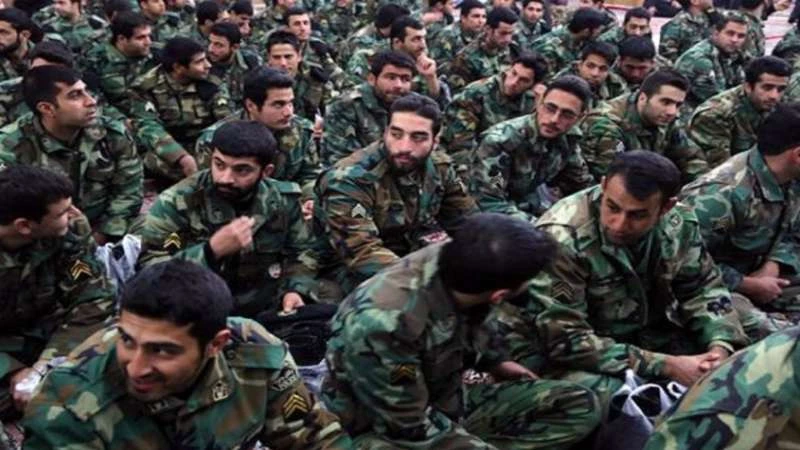The US Treasury said the new sanctions were in response to Tehran’s “continued support for terrorism and development of its ballistic missile programme, This narrative change coming out of Washington should be welcome news. However, the Trump administration and those affected by the malign actions of the Iranian government have a responsibility to explain the seriously destabilising nature of the actions of Tehran and what the world community can do to counter Iran. The focus of the new sanctions is Iran’s Islamic Revolutionary Guards Corps (IRGC) al-Quds Force, led by Qassem Soleimani — the main perpetrator of atrocities and destabilisation in the region. Al-Quds Force under Soleimani directs Hezbollah and other related groups responsible for waging warfare throughout Syria, Iraq, Lebanon, Yemen and other countries. In Syria, the Assad regime and its Tehran-supported militias have allowed the Islamic State (ISIS) to regain territory and extend its reach. The recent recapture of the ancient city of Palmyra by ISIS should demonstrate that the Assad-Russian-Iranian axis is not interested in defeating or destroying ISIS. Rather, they wish to defeat the Syrian people, humiliate the West and inflame sectarian violence across the region. Many human rights organisations and UN agencies have reported massacres, torture, forced starvation of civilians and other abuses by these forces across the region. The terrorist actions of Soleimani and his subordinates did not happen by accident. They are not used to protect a marginalised group or even to prop-up supportive governments. They are conducted to advance the expansionist revolutionary policies of the leading mullahs in Tehran and to sow sectarian dissent throughout the Middle East. It is abundantly clear that Tehran’s IRGC and its supporters in the regime want to export the late Ayatollah Ruhollah Khomeini’s vision of clerical rule under Tehran’s dominance throughout the region by creating an arc of control — the so-called Shia Crescent — from Lebanon through central Afghanistan and then by destabilising countries in the Gulf to take control of the holy cities of Mecca and Medina, breaking the Saudi dynasty in the process. In the short term, the most worrisome aspect for the West is that the actions of Soleimani have led directly to the creation and sustainment of ISIS. Sunni groups in Iraq and Syria are being forced to rely on and accept fealty to ISIS. The alternative is a far worse fate under Soleimani’s terror. This reality is clearly demonstrated in Hillah in Iraq and Aleppo in Syria. The West’s lack of concern and in many cases direct support of Tehran’s militias have acted as a recruiting tool for ISIS in Europe and among disaffected Sunni youth. The world must wake up to the main threat emanating from the Middle East. While ISIS has dominated the news with its savagery and attacks in the West, it is the Tehran-backed groups that create terror on the ground and allow ISIS to flourish. ISIS and the Iranian-Soleimani threat must be tackled at the same time: They are the two sides of the same extremist coin. While world leaders were wise to force Iran to give up its nuclear weapons programme and approve an invasive inspections regime, the partners to that agreement — the United States, Britain, France, Germany, China and Russia — must not give Tehran a free pass just to sustain the agreement. While confronting ISIS, the West must also put in place three key steps to contain Iran. First, the world must give its full support to the Arab coalition’s actions in Yemen. The coalition supports UN Security Council Resolution 2216, which demands that the Houthis, who are funded, armed and directed from Tehran, withdraw from all areas seized during the conflict, relinquish arms seized from military and security institutions and return authority to the legitimate government of Yemen. Second, the international community must stop supporting the Popular Mobilisation Forces (PMF), which are in reality simply Soleimani brigades. It must demand wider political reconciliation and constitutional changes in Baghdad to bring all communities into the political fold and with direct support let the Sunni tribes dismantle ISIS on their own. Third, the West should denounce Tehran’s role in the human rights abuses on the ground in Syria and assert that Tehran should have no role in the future of Syria. Before being nominated as US secretary of Defense, James Mattis called Iran “the single most enduring threat to stability and peace in the Middle East.” It is time for the West to acknowledge and act on this fact. Paul W. Hamill (The Arab Weekly)

The Trump administration took its first major foreign policy step when it put Iran “on notice”, a bold action that was swiftly followed by a new list of sanctions on Iranian entities and individuals.


التعليقات (0)